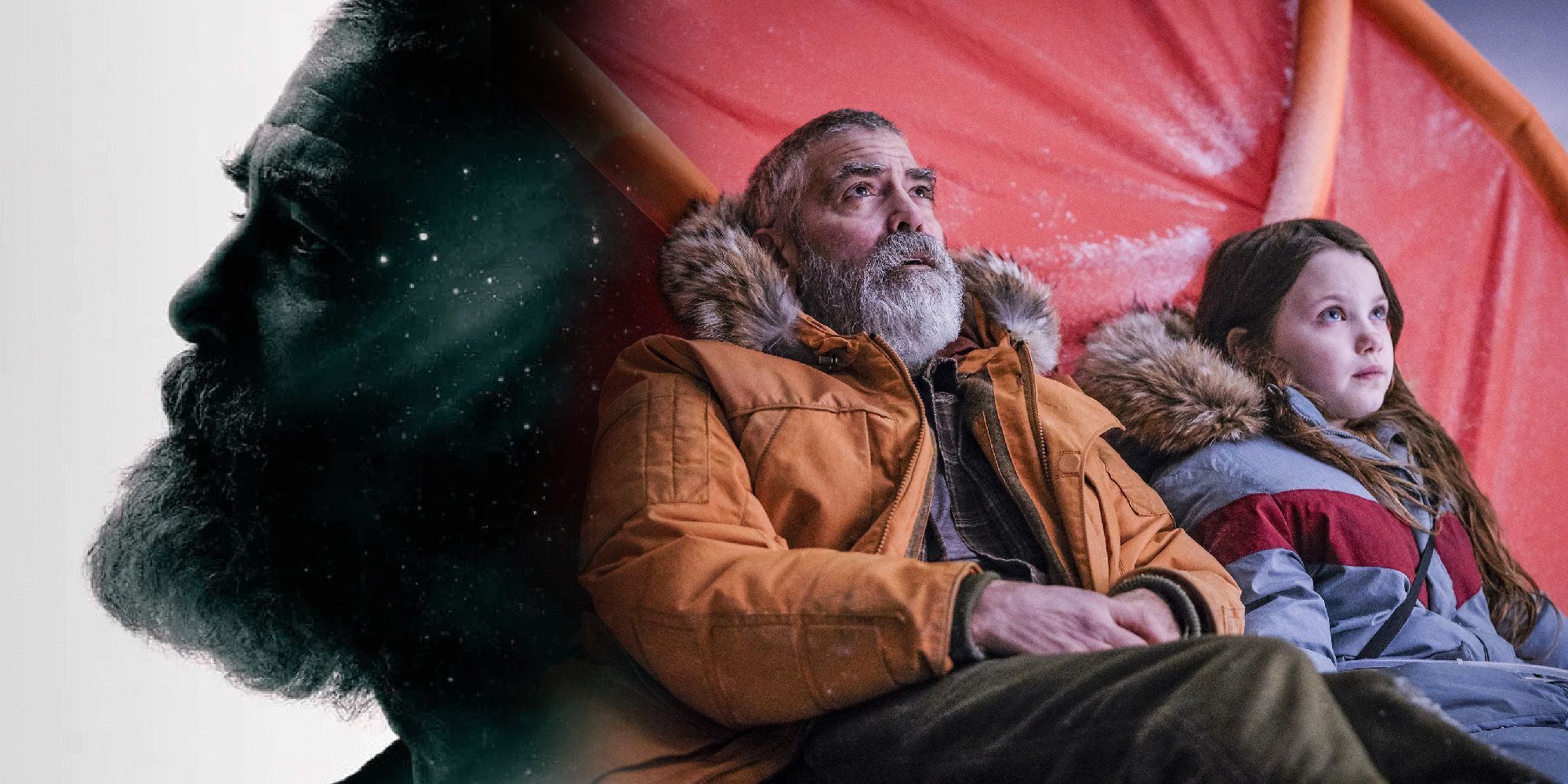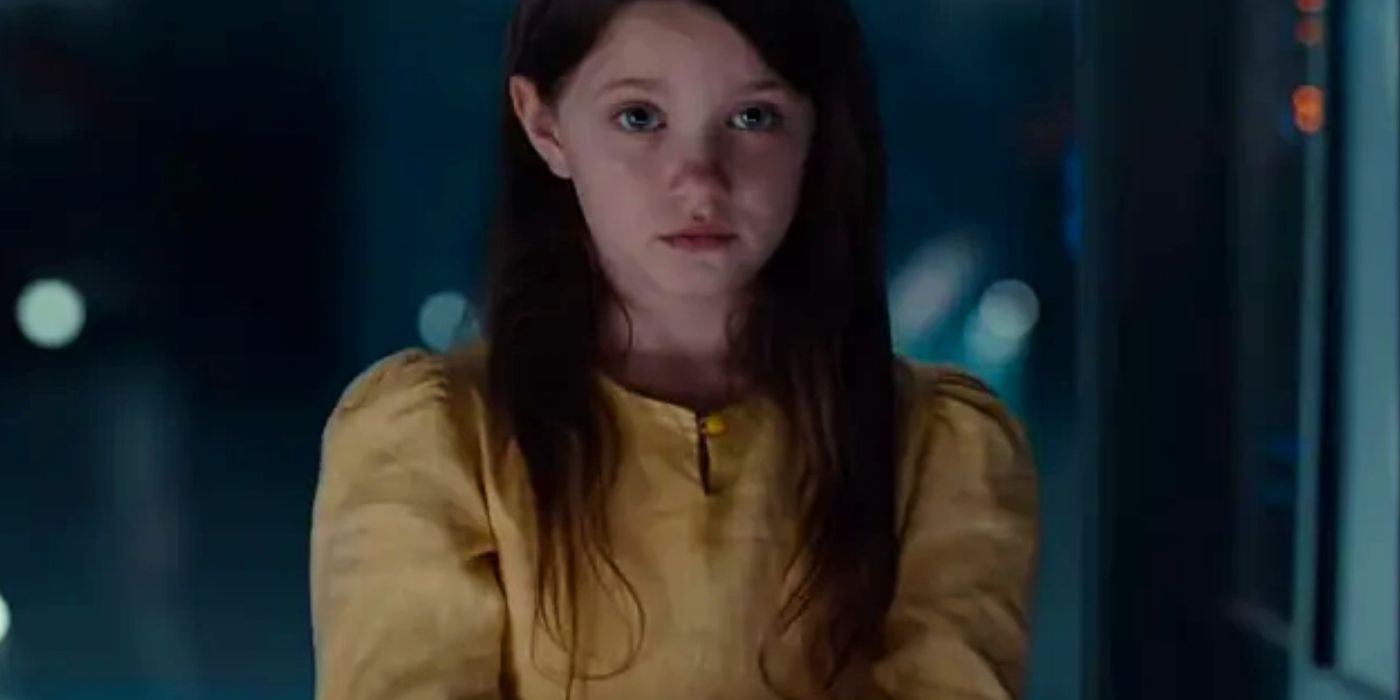
Who was the little girl, Iris, in George Clooney’s sci-fi film, The Midnight Sky? Based on Lily Brooks-Dalton’s 2016 novel, Good Morning, Midnight, The Midnight Sky chronicles the tale of a once-ambitious scientist, Augustine Lofthouse (Clooney), whose work centers around researching habitable planets for possible human colonization.
After a radiation-related catastrophe hits Earth, Lofthouse chooses to stay behind at his Arctic base in an attempt to warn potential space missions that are unaware of the scenario back on Earth. Lofthouse’s stark loneliness is accentuated in The Midnight Sky by his solitary presence amid the sprawling confines of the base, as the audience follows him through his daily chores, which include self-administered blood transfusions, spurred by a terminal illness. However, this self-inflicted isolation is disrupted when Lofthouse finds a little girl in the base, seeming left accidentally behind by the last evacuation cycle. While Lofthouse is initially wary of her presence, trying his best to not form attachments while attempting to take her to safety, he gradually opens up to the child and finds solace in her company.
When Lofthouse notices the child drawing a bunch of irises, he asks her if she is named Iris, to which, the child nods. In an attempt to reach a stronger signal and evade the escalating radiation levels around them, the two make an arduous journey across the snow-capped territory while battling snowstorms, sudden avalanches, and a pack of wild wolves. Throughout the course of the journey, Lofthouse and Iris grow emotionally dependent on the other, especially the former, who offers a kind of parental protection to her. On reaching Lake Hazen weather station, Lofthouse is able to contact the crew of Aether, who are returning from a mission to identify whether the planet K-23, which Lofthouse had discovered, was inhabitable for human habitation. Lofthouse asks them to not head for Earth, explaining the situation, after which two crew members, Sanchez and Mitchell, decide to return to their families nonetheless.

However, Sully (Felicity Jones) and Commander Adewole decide to return back to K-23, as they’re having a child, which could potentially be a fresh start for humanity as a whole. During her final exchange with Lofthouse, Sully thanks him and says that his work had actually inspired her to join NASA and that her full name is Iris Sullivan. Her mother, Jean, was not only Lofthouse’s colleague but also his lover at the time, but things had not worked out due to Lofthouse’s obsessive devotion towards his work. This implies that Iris, or Sully, is actually Lofthouse’s daughter, and the little child is simply a manifestation of his guilt-filled yearning and the sole source of hope during the last legs of his existence. Through sheer luck, or serendipity, circumstances align in a beautiful manner, wherein the universe brings together Lofthouse and Iris, granting meaning to the former’s quest for redemption and the latter’s hope-filled future ahead.
When Sully learns Lofthouse’s identity, she says, “It's very nice to finally meet you,” implying that she is aware of the fact that Lofthouse is her biological father. This moment of quiet acknowledgment offers much solace to the two, who are at diametrically extreme ends of existence - a second chance at life and certain death. For Lofthouse, who had been wracked with guilt and regret in his later years, he yearned for nothing more than the beautiful relationship he shared with Jean and the possibility of connecting with his daughter as a means to atone for his absence. The Midnight Sky ends with Lofthouse accepting his fate in peace, emboldened by the knowledge that Iris would be responsible for the continuation of the human race on K-23, which would potentially mark the inception of a new dawn.
from ScreenRant - Feed https://ift.tt/38tn6tz


0 Comments